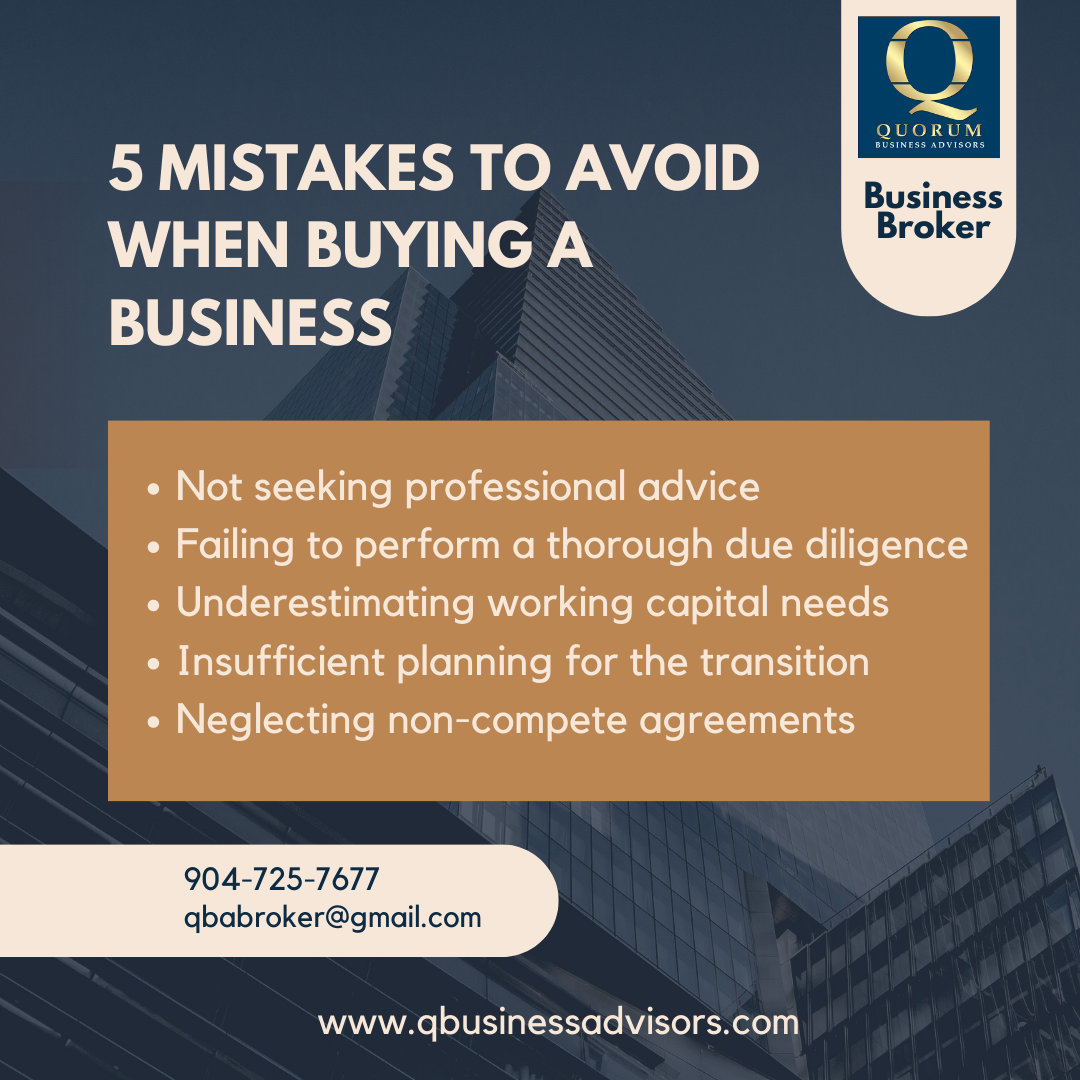The 5 most common mistakes buyers make when buying a business
Not Seeking Professional Help:
One of the biggest mistakes buyers make is not seeking professional help. Buying a business is a complex process that involves many legal, financial, and operational aspects. A business broker can guide you through this process, help you find businesses that match your interests and budget, assist in valuation and negotiations, and facilitate the due diligence process. We can also help connect you with other professionals such as attorneys and accountants who are skilled and experienced in these transactions. Trying to navigate this process without professional help can lead to costly mistakes and oversights.
Not Conducting Thorough Due Diligence:
This is probably the most common mistake. Due diligence is the comprehensive assessment of a business to evaluate its commercial potential. It involves reviewing financial records, legal issues, assets, liabilities, contracts, and more. Failing to conduct a thorough due diligence can lead to unfortunate surprises after the purchase.
Underestimating Capital Needs:
Many buyers focus primarily on the purchase price of a business, without considering the ongoing capital needs after the purchase. It’s important to estimate the working capital you’ll need to run the business effectively, including funds for potential improvements, expansions, or unexpected expenses. Running short on cash post-acquisition can put the business at risk.
Not Planning for the Transition:
Buying a business is just the first step. The transition period after the purchase is critical for the success of the business. Without a well-thought-out transition plan, the business may face disruptions that can affect its operations and financial performance. It is common practice to negotiate a “training” period after the closing when the seller will help with the transition.
Neglecting Non-Compete Agreements:
If the seller of the business starts a new, similar business shortly after selling, they could become a significant competitor. A non-compete agreement can prevent this from happening. Not insisting on a NCA can potentially harm the business you’ve just purchased. Always consult with an attorney about the enforceability and scope of non-compete agreements in your specific situation.
You can search our listings and the listings of cooperating Brokers at this here.

